Feb 11, 2016 | Non categorizzato
“OnCity: Networks of light to inhabit the planet” is the title of a workshop on international citizenship that will take place on April 1-3, 2016 at Castel Gandolfo Conference Centre, Italy. The conference is organised by the New Humanity Movement, Youth for a United World and the United World Project which are all agencies of the Focolare Movement that are engaged in promoting brotherhood among generations, individuals, groups and peoples. We are challenged by current events: bombings, terrorism, new forms of poverty and marginalisation and a piecemeal world war. Cities are in trouble, suffering from contradictions that everyone can see. But there are also positive experiences which show that it is possible to work, believe and hope for more liveable and fraternal cities. The three-day workshop will examine changes taking place in today’s cities and present a lifestyle of dialogue. For information and reservations: oncity2016.net info@oncity2016.net 06/94792170 Download brochure: pdf ONCITY2016- reti di luci per abitare il pianeta (14.05 MB)
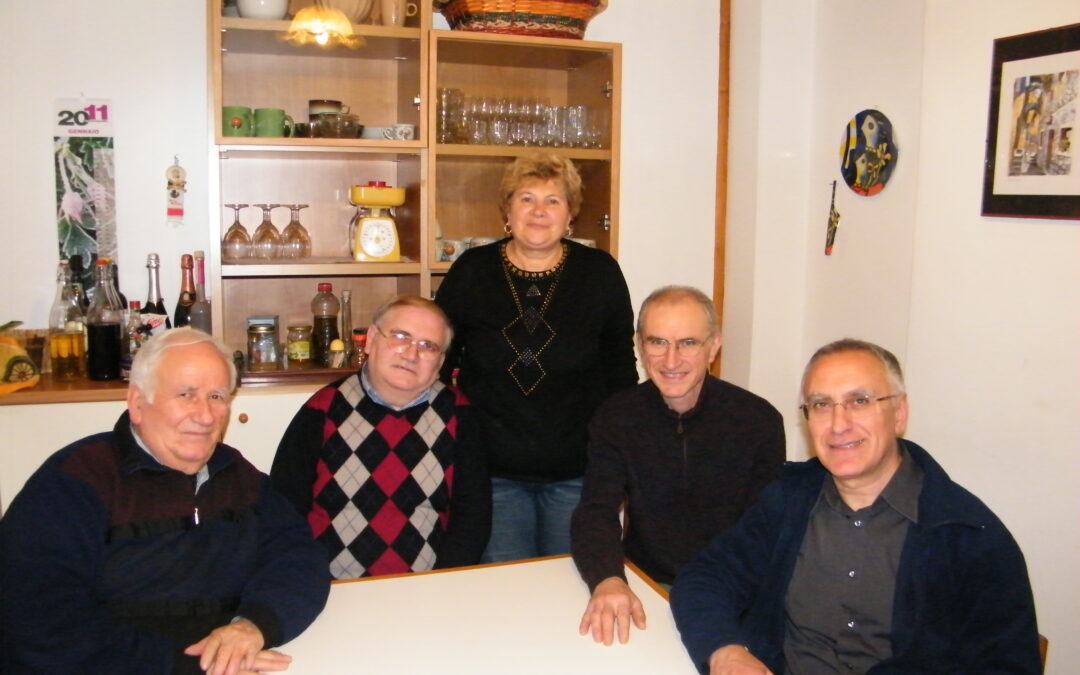
Feb 11, 2016 | Focolare Worldwide, Senza categoria
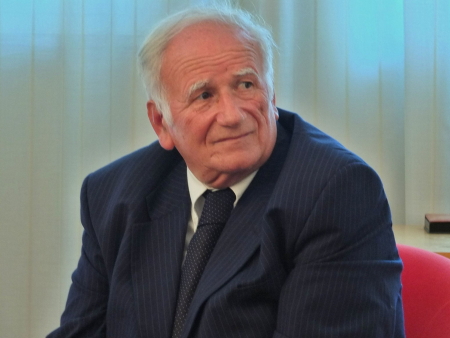 “I was still a child,” Alfonso from the class of 1945 recounts, “when my father was unjustly imprisoned. My mother and I would visit him in prison and, at such a tender age I realised how lonely the inmates were: people without hope or future – and without dignity. So, I promised myself that one day I would do something for them.” Alfonso had to wait for that chance. He enrolled in a course on volunteering and obtained permission to make visits to Rebibbia Prison, which currently has 1,700 inmates. They are serving time for the most varied crimes: drug dealing, sex abuse, mafia activity, extortion, murder, and more. Alfonso was aware that his efforts would be limited by the distrust of the inmates who belived they had lost any chance at redemption. In fact, many of them refused to let him approach. But he never gave up because he was convinced they were the image of the God he had chosen when he became a focolarino. Finally, one inmate named Giorgio who was serving time for a kidnapping that ended in tragedy, asked Alfonso to go to his mother, to embrace her and ask her to forgive him. Alfonso went and found the woman close to the end of her life. This totally unexpected, but long-awaited gesture, reconciled her to her son and the past. A few days later, she died peacefully. Alfonso stood by her son until his release from prison. He also helped Giorgio find temporary employment that restored his sense of dignity, enabling him to contribute to the support of the family.
“I was still a child,” Alfonso from the class of 1945 recounts, “when my father was unjustly imprisoned. My mother and I would visit him in prison and, at such a tender age I realised how lonely the inmates were: people without hope or future – and without dignity. So, I promised myself that one day I would do something for them.” Alfonso had to wait for that chance. He enrolled in a course on volunteering and obtained permission to make visits to Rebibbia Prison, which currently has 1,700 inmates. They are serving time for the most varied crimes: drug dealing, sex abuse, mafia activity, extortion, murder, and more. Alfonso was aware that his efforts would be limited by the distrust of the inmates who belived they had lost any chance at redemption. In fact, many of them refused to let him approach. But he never gave up because he was convinced they were the image of the God he had chosen when he became a focolarino. Finally, one inmate named Giorgio who was serving time for a kidnapping that ended in tragedy, asked Alfonso to go to his mother, to embrace her and ask her to forgive him. Alfonso went and found the woman close to the end of her life. This totally unexpected, but long-awaited gesture, reconciled her to her son and the past. A few days later, she died peacefully. Alfonso stood by her son until his release from prison. He also helped Giorgio find temporary employment that restored his sense of dignity, enabling him to contribute to the support of the family. 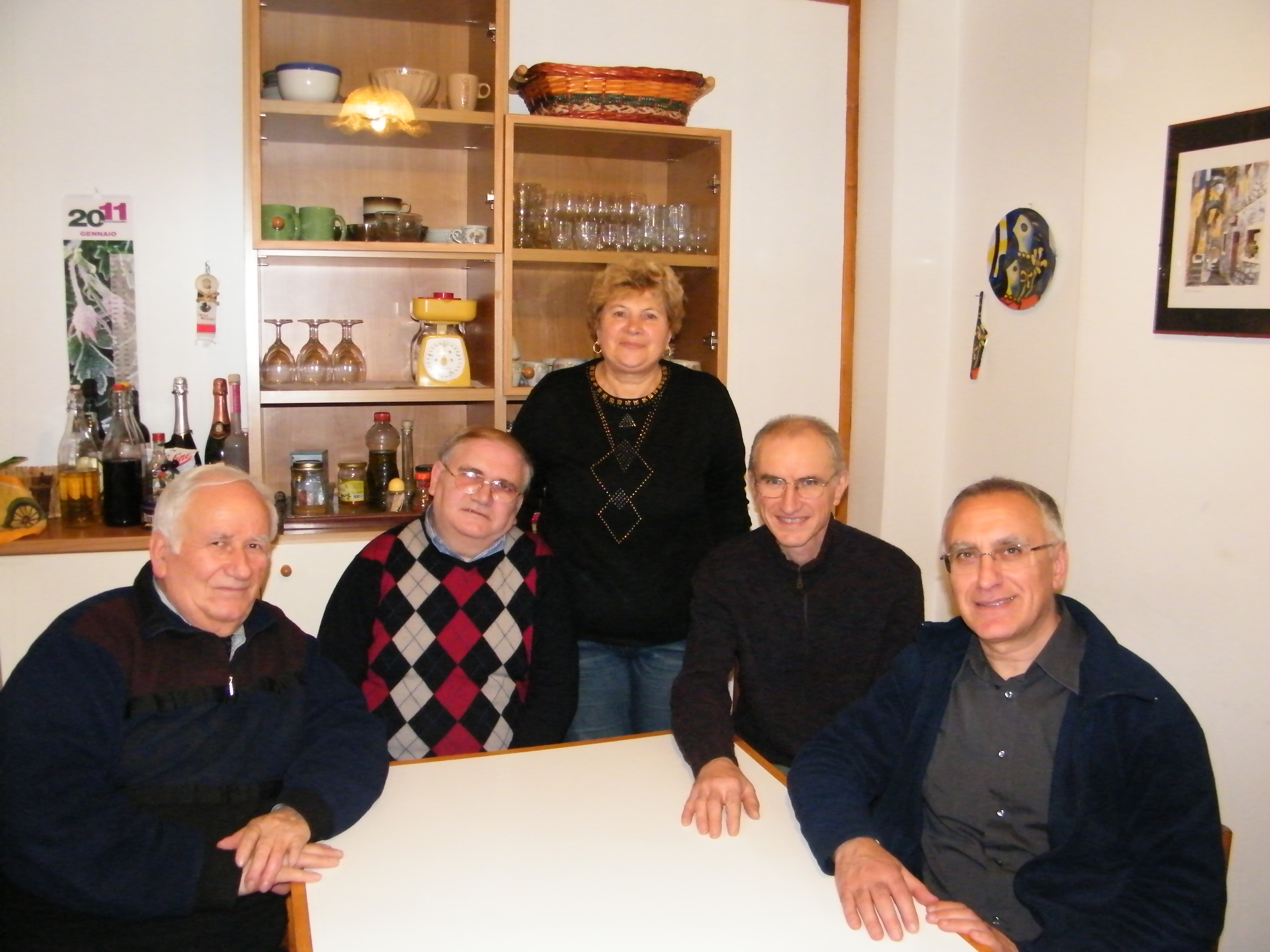 Through his visits with inmates, Alfonso has come to realise the importance of that fragile thread that connects them to the outside world. This is why he works so hard at keeping the relationship with families alive – especially with wives – and supporting families that find themselves in dire straits because of their relative’s imprisonment. This all takes time, people, energy and money. Alfonso never gave up. He began a project called “Always A Person” to show that prison does not take away a person’s human dignity, especially because God’s love for each one of us never diminishes. With 30 other volunteers – parents, professionals and ex-inmates – he has followed up with the families of 160 inmates, offering moral, economic and food support. The numbers grow each day. The spirit of the group is that of a focolare: “being family” for each inmate, being close to him and supporting him – never judging anyone’s past. In prison, words like trust and brotherhood take on deep meaning – especially mercy, an attitude that the volunteers say “acts on the person like a spring that helps them to get up again every time they’re tempted to let themselves go.” That’s how it was for Roberto who, after 8 years of incarceration and not finding any work, became homeless. Thanks to the “Always A Person” project he was accepted into a small welcome centre where he can practice his profession as a cook. There is also Francesco who had been a truck driver, but after 4 years in prison was not able to find a job because people didn’t trust him. Now, he belongs to the team of volunteers that prepares and delivers the packages for prisoners’ families. There are more stories like this one that are recounted in the books: “Ero carcerato…” and “Carcere e dintorni” written by Alfonso Di Nicola, and published by Città Nuova.
Through his visits with inmates, Alfonso has come to realise the importance of that fragile thread that connects them to the outside world. This is why he works so hard at keeping the relationship with families alive – especially with wives – and supporting families that find themselves in dire straits because of their relative’s imprisonment. This all takes time, people, energy and money. Alfonso never gave up. He began a project called “Always A Person” to show that prison does not take away a person’s human dignity, especially because God’s love for each one of us never diminishes. With 30 other volunteers – parents, professionals and ex-inmates – he has followed up with the families of 160 inmates, offering moral, economic and food support. The numbers grow each day. The spirit of the group is that of a focolare: “being family” for each inmate, being close to him and supporting him – never judging anyone’s past. In prison, words like trust and brotherhood take on deep meaning – especially mercy, an attitude that the volunteers say “acts on the person like a spring that helps them to get up again every time they’re tempted to let themselves go.” That’s how it was for Roberto who, after 8 years of incarceration and not finding any work, became homeless. Thanks to the “Always A Person” project he was accepted into a small welcome centre where he can practice his profession as a cook. There is also Francesco who had been a truck driver, but after 4 years in prison was not able to find a job because people didn’t trust him. Now, he belongs to the team of volunteers that prepares and delivers the packages for prisoners’ families. There are more stories like this one that are recounted in the books: “Ero carcerato…” and “Carcere e dintorni” written by Alfonso Di Nicola, and published by Città Nuova.
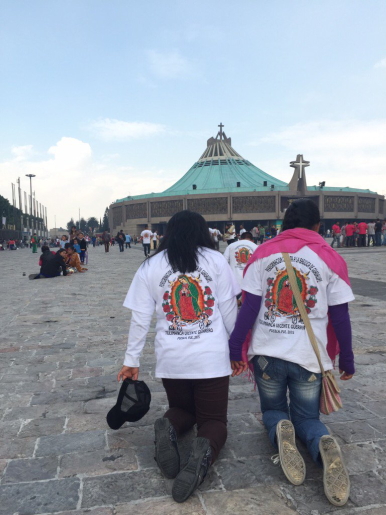
Feb 10, 2016 | Focolare Worldwide
 “Mexico City seems to be different today. There is a wave of hope, new life, and joy. The streets, phone booths, subways, and posters of the big avenues of the city, all announce the arrival of the Pilgrim from Rome, who wants, “like any other son, to come close to the Mother,” the beloved “Vírgin of Guadalupe”, Mother of all the Mexicans, Patron of the American continent, and according to many historians, the true author of unity of the Aztec nation. “I shall go to Our Lady like a pilgrim of mercy and peace. I am going to seek the Mexican people, who can give me something… I seek the deep faith you have, and I want to be contaminated with that richness of faith…,” Pope Francis said in the video-message sent to the Mexican people. And Mexico is preparing not only to receive him materially, but especially with the desire to receive with open hearts, the message of the “Bishop of Rome.” It is a message of hope, mercy, reconcilement, peace and fraternity. One feels a new attitude towards this pastoral visit. Of course there will be joy, emotion, and festivity, but also the desire to remain silent, listen and live it in depth. The Pope is coming in a particularly difficult time for our country, struck by violence, poverty and corruption, but in the messages he already sent to the Mexican people, Francis also conveyed his desire to come as “any man” and will involve every Mexican to help them bring out the best of themselves. In reading between the lines, we could almost say that his presence among us, if we manage to interpret and live it properly, can become a magnet for the many abilities our people possess, so as to radically swerve our path towards a more fraternal Mexico. The stages of the journey will not leave anyone out: Mexico City, Ecatepec, Chiapas, Morelia, and Ciudad Juárez. The pope will travel thousands of kilometres from the north to the south of the country. It will be a journey that will touch the neuralgic centres of conflicts, suffering, and at times even tragedies which Mexico is suffering, from the big city with its anonymity and social injustice, to the marginalised indigenous world, narcotraffick with all its violence, and the issue of border immigrants north of the country. The chosen itinerary and the activities to be held will launch a clear message: the Pope will come as a missionary of mercy and peace, especially for the most needy, and wants to share the wounds of this nation. Together with all the members of the Focolare Movement in the country, we have prepared ourselves by studying the teachings of Francis in depth, particularly the themes he will face in his visit: the youth, family, immigration, employment, and civilization of the aborigines. We want to receive his message, meet him and listen to him wherever he goes, even in the streets, and in the many routes his hoodless car will take. Moreover, we were called by the Mexican Episcopal Conference to collaborate, together with other ecclesiastical movements, in the visit’s logistics services especially in Mexico City. Welcome to Mexico, Pope Francis. With you we want to be missionaries of mercy and peace!.” From our news correspondents, Anabel Abascal and Raffaele Massolin Video-messaggio to the Mexican people: http://youtu.be/o8Y9VMFmOX0 Also consult: http://www.news.va/es/news/el-papa-a-los-mexicanos-voy-a-buscar-a-la-riquez-2 Official site: http://papafranciscoenmexico.org/
“Mexico City seems to be different today. There is a wave of hope, new life, and joy. The streets, phone booths, subways, and posters of the big avenues of the city, all announce the arrival of the Pilgrim from Rome, who wants, “like any other son, to come close to the Mother,” the beloved “Vírgin of Guadalupe”, Mother of all the Mexicans, Patron of the American continent, and according to many historians, the true author of unity of the Aztec nation. “I shall go to Our Lady like a pilgrim of mercy and peace. I am going to seek the Mexican people, who can give me something… I seek the deep faith you have, and I want to be contaminated with that richness of faith…,” Pope Francis said in the video-message sent to the Mexican people. And Mexico is preparing not only to receive him materially, but especially with the desire to receive with open hearts, the message of the “Bishop of Rome.” It is a message of hope, mercy, reconcilement, peace and fraternity. One feels a new attitude towards this pastoral visit. Of course there will be joy, emotion, and festivity, but also the desire to remain silent, listen and live it in depth. The Pope is coming in a particularly difficult time for our country, struck by violence, poverty and corruption, but in the messages he already sent to the Mexican people, Francis also conveyed his desire to come as “any man” and will involve every Mexican to help them bring out the best of themselves. In reading between the lines, we could almost say that his presence among us, if we manage to interpret and live it properly, can become a magnet for the many abilities our people possess, so as to radically swerve our path towards a more fraternal Mexico. The stages of the journey will not leave anyone out: Mexico City, Ecatepec, Chiapas, Morelia, and Ciudad Juárez. The pope will travel thousands of kilometres from the north to the south of the country. It will be a journey that will touch the neuralgic centres of conflicts, suffering, and at times even tragedies which Mexico is suffering, from the big city with its anonymity and social injustice, to the marginalised indigenous world, narcotraffick with all its violence, and the issue of border immigrants north of the country. The chosen itinerary and the activities to be held will launch a clear message: the Pope will come as a missionary of mercy and peace, especially for the most needy, and wants to share the wounds of this nation. Together with all the members of the Focolare Movement in the country, we have prepared ourselves by studying the teachings of Francis in depth, particularly the themes he will face in his visit: the youth, family, immigration, employment, and civilization of the aborigines. We want to receive his message, meet him and listen to him wherever he goes, even in the streets, and in the many routes his hoodless car will take. Moreover, we were called by the Mexican Episcopal Conference to collaborate, together with other ecclesiastical movements, in the visit’s logistics services especially in Mexico City. Welcome to Mexico, Pope Francis. With you we want to be missionaries of mercy and peace!.” From our news correspondents, Anabel Abascal and Raffaele Massolin Video-messaggio to the Mexican people: http://youtu.be/o8Y9VMFmOX0 Also consult: http://www.news.va/es/news/el-papa-a-los-mexicanos-voy-a-buscar-a-la-riquez-2 Official site: http://papafranciscoenmexico.org/
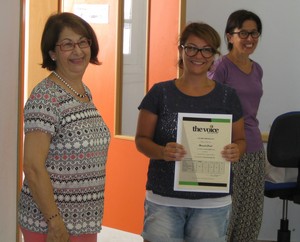
Feb 9, 2016 | Focolare Worldwide
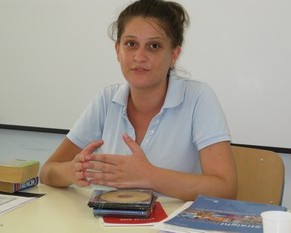 Coming down from the bus we immediately spot ““The Voice School of English”, situated in Pembroke, a few metres away the sea. The modern and spacious Malta National Sports School houses the Voice during the summer months. Andy, who co-ordinates the students’ visit to Malta, greets us with a big smile. She does not only know all the students by name, as actually all the teachers do, but she makes it a point to see that they receive the care and attention needed, while she works very closely even with the host families to ensure the comfort and well-being of each student. Together with Andy there is Vivienne, who has been working at The Voice since its very beginning 23 years ago; Maria, who after a long career in the Ministry of Education now offers her expertise as head of school, and Marilyn, who joined the school staff two years ago as director of studies. With her impressive record as teacher of English, Marilyn gives her precious contribution on pedagogical level; she follows very closely the academic progress of the students and she mentors the teaching staff to ensure support and progress in the teaching of English as a foreign language. The school prides itself with a team of professional and dedicated teachers. “The Voice” was founded in 1992 by a group of young people who decided to become personally involved in the Economy of Communion project launched by Chiara Lubich. Some of these young people are now the older generation who host students. Vivienne, who has been head of school for years and who still helps with its administration, looks back and relates: “Prior to the Voice I started a small business but the difficulties and problems I had to face made me decide to quit and promise that I would never attempt such a feat again. When I was roped in to help with the Voice, I discovered an economic activity motivated by different aspirations. This made me change my mind and till the present day I contribute wholeheartedly to make this project survive”.
Coming down from the bus we immediately spot ““The Voice School of English”, situated in Pembroke, a few metres away the sea. The modern and spacious Malta National Sports School houses the Voice during the summer months. Andy, who co-ordinates the students’ visit to Malta, greets us with a big smile. She does not only know all the students by name, as actually all the teachers do, but she makes it a point to see that they receive the care and attention needed, while she works very closely even with the host families to ensure the comfort and well-being of each student. Together with Andy there is Vivienne, who has been working at The Voice since its very beginning 23 years ago; Maria, who after a long career in the Ministry of Education now offers her expertise as head of school, and Marilyn, who joined the school staff two years ago as director of studies. With her impressive record as teacher of English, Marilyn gives her precious contribution on pedagogical level; she follows very closely the academic progress of the students and she mentors the teaching staff to ensure support and progress in the teaching of English as a foreign language. The school prides itself with a team of professional and dedicated teachers. “The Voice” was founded in 1992 by a group of young people who decided to become personally involved in the Economy of Communion project launched by Chiara Lubich. Some of these young people are now the older generation who host students. Vivienne, who has been head of school for years and who still helps with its administration, looks back and relates: “Prior to the Voice I started a small business but the difficulties and problems I had to face made me decide to quit and promise that I would never attempt such a feat again. When I was roped in to help with the Voice, I discovered an economic activity motivated by different aspirations. This made me change my mind and till the present day I contribute wholeheartedly to make this project survive”. 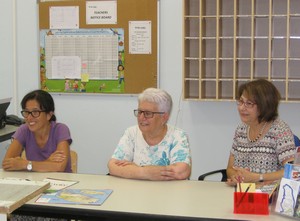 And notwithstanding difficulties and challenges the Voice is still offering its service to foreign students. Presently there are 47 English Language Schools in Malta and some of them cater for thousands of students, so one may wonder how such a small enterprise as the Voice still manages to keep going. Marilyn explains, “We aim at giving individual attention to each student, so the number of students in each class hardly ever exceeds 6; occasionally there is maximum of 8 students. Of course, this means that we have to employ more teachers! The school also offers one-to-one programmes that satisfy the student’s individual needs”. In this way, the teacher-student relationship becomes the pedagogical method, the key to linguistic progress, especially where the development of oral communication skills are concerned. The Voice experience continues with the host families, where students are given the opportunity not only to practise their English, but also to discover the Maltese culture and share the warm family atmosphere. Building relationships is a priority, explains Vivienne, a prerogative which gives the school its identity. “Here no student is a number; they are friends with whom we share all that we can, and even they share a lot with us”. This becomes even more evident during the Friday Certificate Award Ceremony when students who have finished the course wave good-bye to the rest of “community”, a term used by the students themselves. The Director of Studies has a word full of warmth and encouragement for each departing student, while the students’ faces reflect the pride of their achievement. Students interviewed speak of the family atmosphere created at the school. Karina says “I have found friends and very friendly teachers who really wish me well”, while Raffaella adds, “I feel encouraged to look for work when I go back home by the fact that my teacher at the Voice was younger than I; l would like to give my best, just like her”. In conformity with its values and its commitment towards the Economy of Communion, the Voice opts to employ and train new young members to join its team.
And notwithstanding difficulties and challenges the Voice is still offering its service to foreign students. Presently there are 47 English Language Schools in Malta and some of them cater for thousands of students, so one may wonder how such a small enterprise as the Voice still manages to keep going. Marilyn explains, “We aim at giving individual attention to each student, so the number of students in each class hardly ever exceeds 6; occasionally there is maximum of 8 students. Of course, this means that we have to employ more teachers! The school also offers one-to-one programmes that satisfy the student’s individual needs”. In this way, the teacher-student relationship becomes the pedagogical method, the key to linguistic progress, especially where the development of oral communication skills are concerned. The Voice experience continues with the host families, where students are given the opportunity not only to practise their English, but also to discover the Maltese culture and share the warm family atmosphere. Building relationships is a priority, explains Vivienne, a prerogative which gives the school its identity. “Here no student is a number; they are friends with whom we share all that we can, and even they share a lot with us”. This becomes even more evident during the Friday Certificate Award Ceremony when students who have finished the course wave good-bye to the rest of “community”, a term used by the students themselves. The Director of Studies has a word full of warmth and encouragement for each departing student, while the students’ faces reflect the pride of their achievement. Students interviewed speak of the family atmosphere created at the school. Karina says “I have found friends and very friendly teachers who really wish me well”, while Raffaella adds, “I feel encouraged to look for work when I go back home by the fact that my teacher at the Voice was younger than I; l would like to give my best, just like her”. In conformity with its values and its commitment towards the Economy of Communion, the Voice opts to employ and train new young members to join its team.  Moreover, an enterprise founded by young people cannot ignore the importance of offering work opportunities to youth. Claire, one of these young members of the staff, has been employed to guide and animate the afternoon leisure activities, because at the Voice it is not only English lessons that count but the whole shared experience, an opportunity to enhance the student’s personal development. In addition, Malta is a cultural and historical jewel…….and between a visit to the Pre-historic temples and the splendid Blue Grotto, one is often allowed enough time for a dip in the crystal clear water. Next time it might be the island of Comino and the Blue Lagoon, followed by a visit to the sister island of Gozo with its historical Citadel, or a visit to Valletta, the capital city where students can enjoy one of the most popular tourist attractions: an audio-visual show that tells all about the history and culture of the Maltese Islands. As days pass and one group “selfie” follows another, the school community changes; new arrivals are greeted with joy and there are hearty farewells for those who depart. At times the community circle widens because relatives holidaying in Malta join the school during its leisure activities. And more often than not, conversations at the beach tend to become serious talk on topics, such as the concept of the Economy of Communion that motivates the Voice, or on ideas about personal projects, or on issues that accompany one’s personal growth and professional development. Addresses and WhatsApp contacts are frequently exchanged……friendship does not end with the English course! Lately, new members who believe in the philosophy of the Economy of Communion have been invited by the Voice to join its group of directors; among them there is John, a consultant in Human Resources and Management, who specializes in the area of Tourism. The Voice looks forward to new developments! by Anouk Grevin Source: Economy of Communion Download brochure See the video: https://vimeo.com/135970956
Moreover, an enterprise founded by young people cannot ignore the importance of offering work opportunities to youth. Claire, one of these young members of the staff, has been employed to guide and animate the afternoon leisure activities, because at the Voice it is not only English lessons that count but the whole shared experience, an opportunity to enhance the student’s personal development. In addition, Malta is a cultural and historical jewel…….and between a visit to the Pre-historic temples and the splendid Blue Grotto, one is often allowed enough time for a dip in the crystal clear water. Next time it might be the island of Comino and the Blue Lagoon, followed by a visit to the sister island of Gozo with its historical Citadel, or a visit to Valletta, the capital city where students can enjoy one of the most popular tourist attractions: an audio-visual show that tells all about the history and culture of the Maltese Islands. As days pass and one group “selfie” follows another, the school community changes; new arrivals are greeted with joy and there are hearty farewells for those who depart. At times the community circle widens because relatives holidaying in Malta join the school during its leisure activities. And more often than not, conversations at the beach tend to become serious talk on topics, such as the concept of the Economy of Communion that motivates the Voice, or on ideas about personal projects, or on issues that accompany one’s personal growth and professional development. Addresses and WhatsApp contacts are frequently exchanged……friendship does not end with the English course! Lately, new members who believe in the philosophy of the Economy of Communion have been invited by the Voice to join its group of directors; among them there is John, a consultant in Human Resources and Management, who specializes in the area of Tourism. The Voice looks forward to new developments! by Anouk Grevin Source: Economy of Communion Download brochure See the video: https://vimeo.com/135970956
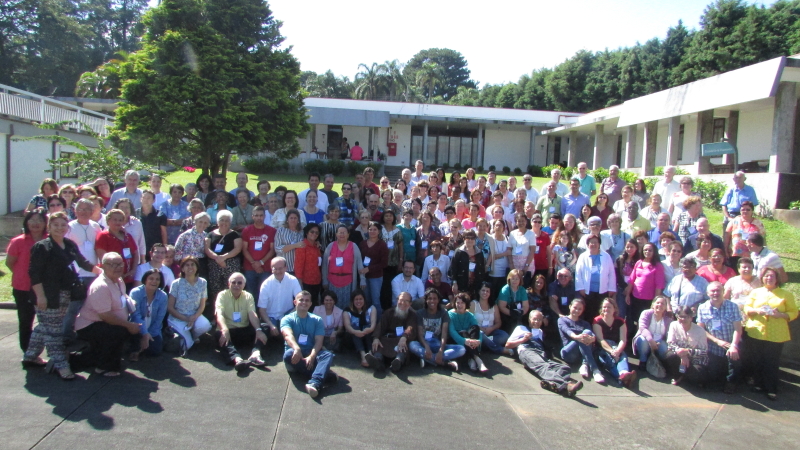
Feb 8, 2016 | Focolare Worldwide
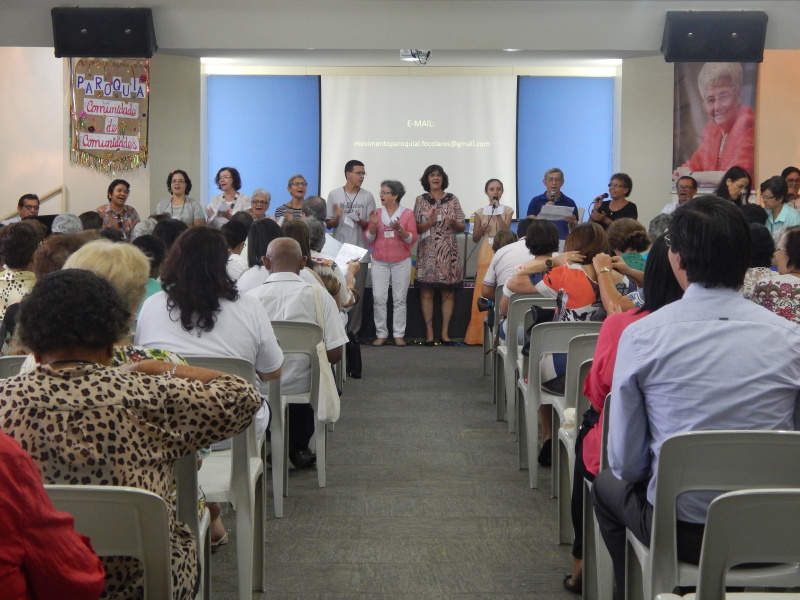 «I had been unjustly accused before the entire parish council. My answer was: silence, tears. After three days there was a phone call from that person, broken with emotion: “Will you forgive me?” and the answer, “I have already forgiven!!! Then a thought came to mind: it was not enough to forgive, but I could do more. So I invited that person to dinner, and a friendship was born, which will never be broken.» This is the story of Berenice, mother of three children, and a catechist for over 20 years, and then a minister of the Word in the five communities that make up the parish of Immaculata Conceção, in one of the peripheral districts of the immense city of Sao Paolo. These were flash backs of the many experiences recounted during the two “Schools of Communion” of the Parish Movement – branch of the Focolare Movement in the local Church – held from 22 to 24 January in the Ginetta Mariapolis, in Vargem Grande Paulista (SP) and from 30 to 31 January in the Mariapolis (Igarassu-Recife). The encounters focused on: Unity, the specific charism of the Focolare, with a particular stress on Mercy in this Holy Year. These were attended by 300 people consisting of the youth, lay adults, religious, seminarians, deacons and priests of 116 parishes in 27 dioceses from 16 Brazilian states. Together they testified to the force of forgiveness and mercy of evangelical love, which make the parish a community of communities, when this force and mercy are lived among the members of the movements.”
«I had been unjustly accused before the entire parish council. My answer was: silence, tears. After three days there was a phone call from that person, broken with emotion: “Will you forgive me?” and the answer, “I have already forgiven!!! Then a thought came to mind: it was not enough to forgive, but I could do more. So I invited that person to dinner, and a friendship was born, which will never be broken.» This is the story of Berenice, mother of three children, and a catechist for over 20 years, and then a minister of the Word in the five communities that make up the parish of Immaculata Conceção, in one of the peripheral districts of the immense city of Sao Paolo. These were flash backs of the many experiences recounted during the two “Schools of Communion” of the Parish Movement – branch of the Focolare Movement in the local Church – held from 22 to 24 January in the Ginetta Mariapolis, in Vargem Grande Paulista (SP) and from 30 to 31 January in the Mariapolis (Igarassu-Recife). The encounters focused on: Unity, the specific charism of the Focolare, with a particular stress on Mercy in this Holy Year. These were attended by 300 people consisting of the youth, lay adults, religious, seminarians, deacons and priests of 116 parishes in 27 dioceses from 16 Brazilian states. Together they testified to the force of forgiveness and mercy of evangelical love, which make the parish a community of communities, when this force and mercy are lived among the members of the movements.”  There were numberless fruits of the Word of God put into practice: in the districts of the outskirts where the laity took charge of finding the facilities to host the growing numbers of the faithful and the youth, who dedicated themselves to the various pastoral activities in the prisons or parish social works where the priority is to listen and pay attention to the person rather than to organization and material aid. Some undertook to initiate small encounters in the parishioners’ homes, bringing the Word of Life to the lives of families that are oftentimes far from the Church as in the case of Maria Hélia from a community of Marechal Deodoro. Bernadete lives in João Pessoa and is a catechist in the parish of Baby Jesus and a member of the archdiocesan team of catechists. She tries to share what she lives with a great openness to dialogue, starting from her family and relatives who belong to the evangelical church and Pentecostal associations. On Christmas Day she managed to involve everyone – including her husband who is not a Church goer – in a sketch of the birth of Jesus. “A spirit of dialogue and unity was established among all of us. We had a real Christmas!” During the conclusive meeting, the commitment declared by all was to become builders of unity within the communities, creating relationships in which, through mutual love, the Risen Christ is present and attracts and transforms everything, irradiating peace and joy. The objective was this: to have an open heart and fulfill “Jesus’ dream” when he prayed to the Father ”that all may be one.”
There were numberless fruits of the Word of God put into practice: in the districts of the outskirts where the laity took charge of finding the facilities to host the growing numbers of the faithful and the youth, who dedicated themselves to the various pastoral activities in the prisons or parish social works where the priority is to listen and pay attention to the person rather than to organization and material aid. Some undertook to initiate small encounters in the parishioners’ homes, bringing the Word of Life to the lives of families that are oftentimes far from the Church as in the case of Maria Hélia from a community of Marechal Deodoro. Bernadete lives in João Pessoa and is a catechist in the parish of Baby Jesus and a member of the archdiocesan team of catechists. She tries to share what she lives with a great openness to dialogue, starting from her family and relatives who belong to the evangelical church and Pentecostal associations. On Christmas Day she managed to involve everyone – including her husband who is not a Church goer – in a sketch of the birth of Jesus. “A spirit of dialogue and unity was established among all of us. We had a real Christmas!” During the conclusive meeting, the commitment declared by all was to become builders of unity within the communities, creating relationships in which, through mutual love, the Risen Christ is present and attracts and transforms everything, irradiating peace and joy. The objective was this: to have an open heart and fulfill “Jesus’ dream” when he prayed to the Father ”that all may be one.”
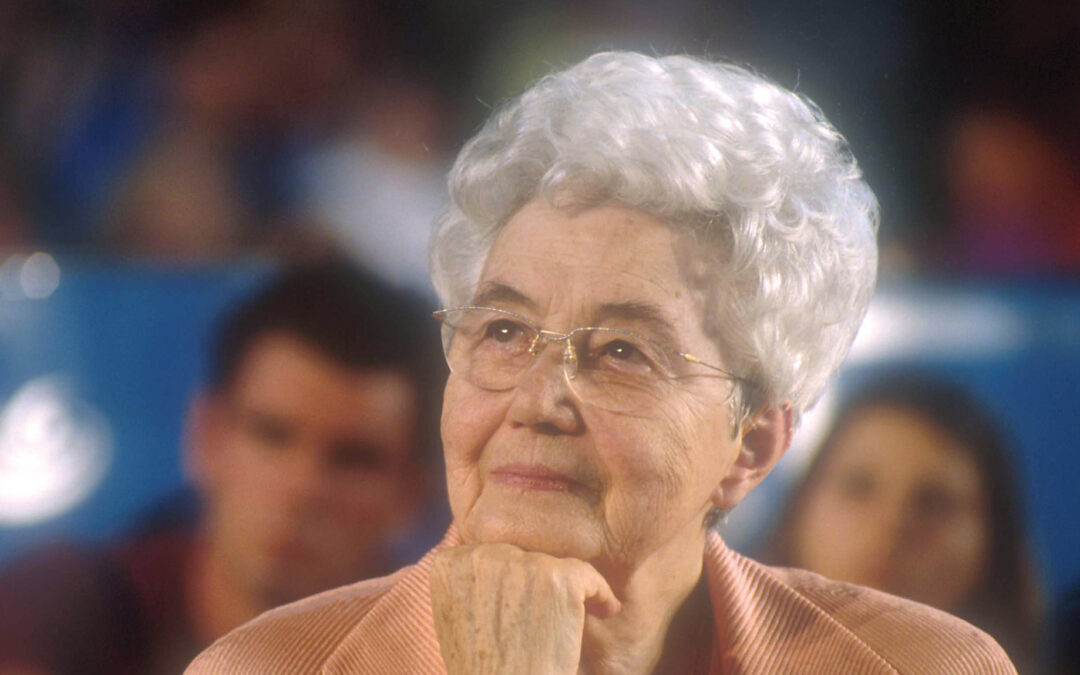
Feb 7, 2016 | Non categorizzato
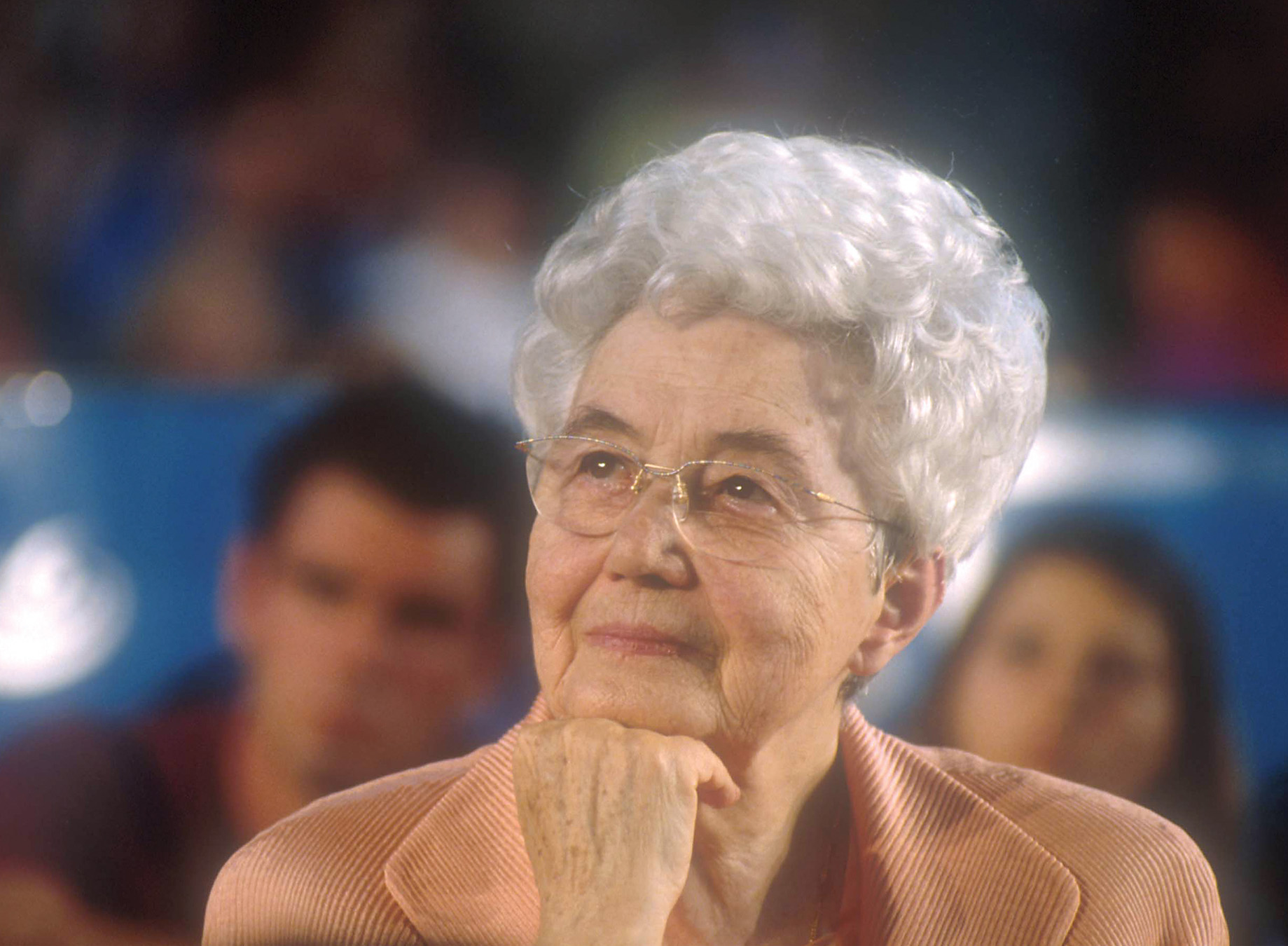 (…)“Let among you who is without sin be the first to throw a stone at her”
(…)“Let among you who is without sin be the first to throw a stone at her” (Jn 8:7). Jesus said this to those who wanted to stone the adulteress. The central idea in Jesus’ commands is always love. This is why he doesn’t want us Christians to condemn anyone. In fact he says, “Do not judge,” and proclaims, “Blessed are the merciful.” Jesus wants mercy. Nevertheless, from what he says one could conclude that there is someone who could throw the first stone: whoever is without sin.
This is certainly not one of us, we are all sinners. But there is a person who is without sin. And we know who she is: the Mother of God. Could Mary, then, “throw a stone” at someone who erred? Did she ever do such a thing when she was on earth?
We know our Mother. We know what Scripture says about her, what Tradition has handed down to us about her, what the People of God have always thought about her. Mary loves everyone. She is merciful She is the advocate of the most unfortunate. It is to her that countless Christians have turned, when they have had the impression that God’s justice was upon them. Mary does not throw stones. Quite the contrary, no one except Jesus spreads love the way she does. Why? Because she is a mother, and mothers only know how to love. It is typical of a mother to love her children as herself, because there’s something of herself in them. … We too can find something of ourselves in others. For we must see Jesus in ourselves and in every neighbour.
What shall we do? With each neighbor, at home, at work, or on the street, with the people we talk; with those we speak to over the phone, or for whom we carry out our daily work – with every person we meet these days, we must think: “I must act as if I were his or her mother,” and act accordingly. Mothers are always serving, Mothers always find excuses for their children. Mothers are always full of hope.
“As if I were his or her mother”, this is thought which must be foremost in our minds these days. This must be our resolution, if we want to be sure not to throw stones: and to be Mary’s presence here on earth for everyone we meet. Chiara Lubich Rocca di Papa, 3rd March 1983 Source: Chiara Lubich Centre
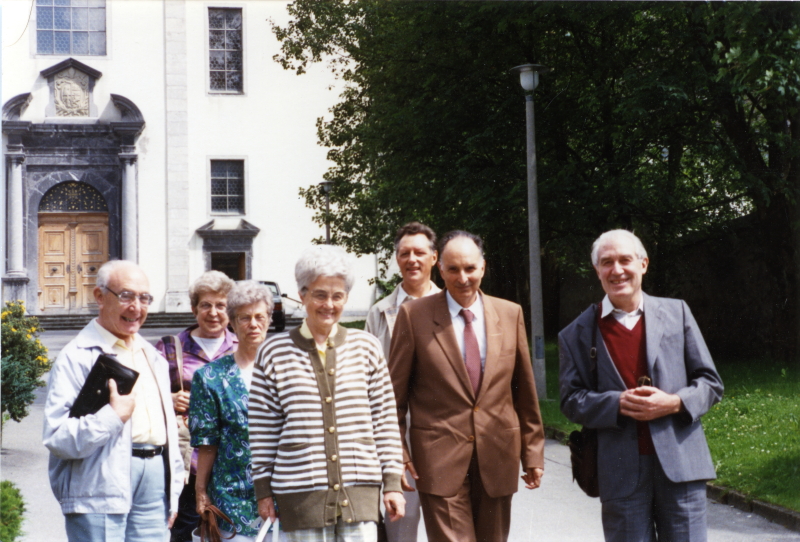
Feb 6, 2016 | Non categorizzato
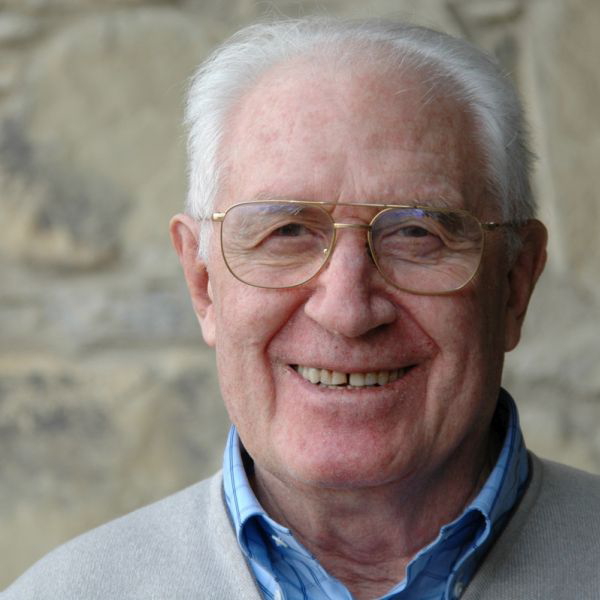 Card. Giuseppe Betori, Archbishop of Florence traced an important phase of his story, and described him as «A promoter of proactive communion between the various groups and associations,» who «interpreted the hope of Cardinal Benelli and Chiara Lubich» for the creation of the Giorgio La Pira International Students’ Centre in Florence at the turn of the 1970s. In fact, Giorgio Martelli, a native of Pistoia, Tuscany, gave a decisive contribution to the birth of this joint project between the Florentine Archdiocese and the Focolare Movement, which up to today continues its commitment to the «youth from all the nations worldwide, especially the developing countries, fostering fraternal acceptance and promoting dialogue between people of all cultures and creeds.» The story of the La Pira Centre is one of the important stories that has crossed the life of Turnea (the name Chiara Lubich gave him and that described his: Turris Eburnea, Tower of Ivory, taken from the Marian litanies). Born into a working-class family, Turnea was brought up with a simple faith, moral rectitude and thirst for justice. As a young man he was active in the Catholic Action where he received a more solid Christian education. During the war, he and his father were caught twice in a round-up which condemned him to forced labour, from which he managed to escape. After the war he started working in the labour union as a clerk in the contracts and litigations office, and at the same time, took up his studies again and graduated as an industrial surveyor. During the Catholic Action period he met other youth active in Christian movements, among whom were Bruno Venturini, and Vitaliano Bulletti who also became focolarini. He himself commented on that period: «Before me were two aspects of Christian life that were alternatively a more personal aspect of the quest for a relationship with God, and a more social one concerning the need for fraternity among men, and the justice and struggles to reach them. But these were two separate spheres!!» His first meeting with the focolare came about in January 1950 when he first met Graziella De Luca, who had gone to his city to speak to some people about the experience of the newborn Focolare Movement. In the following months he went several times to Rome where he met, besides Chiara, the first focolare men and women. After an internal struggle that lasted a few months, he decided to become one of them, and after leaving his fiancée and family – amid great misunderstandings – he moved to Rome, and joined the first men’s focolare house. Subsequently, he lived in various focolare houses in Italy and Holland .
Card. Giuseppe Betori, Archbishop of Florence traced an important phase of his story, and described him as «A promoter of proactive communion between the various groups and associations,» who «interpreted the hope of Cardinal Benelli and Chiara Lubich» for the creation of the Giorgio La Pira International Students’ Centre in Florence at the turn of the 1970s. In fact, Giorgio Martelli, a native of Pistoia, Tuscany, gave a decisive contribution to the birth of this joint project between the Florentine Archdiocese and the Focolare Movement, which up to today continues its commitment to the «youth from all the nations worldwide, especially the developing countries, fostering fraternal acceptance and promoting dialogue between people of all cultures and creeds.» The story of the La Pira Centre is one of the important stories that has crossed the life of Turnea (the name Chiara Lubich gave him and that described his: Turris Eburnea, Tower of Ivory, taken from the Marian litanies). Born into a working-class family, Turnea was brought up with a simple faith, moral rectitude and thirst for justice. As a young man he was active in the Catholic Action where he received a more solid Christian education. During the war, he and his father were caught twice in a round-up which condemned him to forced labour, from which he managed to escape. After the war he started working in the labour union as a clerk in the contracts and litigations office, and at the same time, took up his studies again and graduated as an industrial surveyor. During the Catholic Action period he met other youth active in Christian movements, among whom were Bruno Venturini, and Vitaliano Bulletti who also became focolarini. He himself commented on that period: «Before me were two aspects of Christian life that were alternatively a more personal aspect of the quest for a relationship with God, and a more social one concerning the need for fraternity among men, and the justice and struggles to reach them. But these were two separate spheres!!» His first meeting with the focolare came about in January 1950 when he first met Graziella De Luca, who had gone to his city to speak to some people about the experience of the newborn Focolare Movement. In the following months he went several times to Rome where he met, besides Chiara, the first focolare men and women. After an internal struggle that lasted a few months, he decided to become one of them, and after leaving his fiancée and family – amid great misunderstandings – he moved to Rome, and joined the first men’s focolare house. Subsequently, he lived in various focolare houses in Italy and Holland .  In 1968 Turnea he was appointed by Chiara as the first person to take charge of the newborn branch of the Volunteers of God. At their conventions Turnea encouraged moments of debate on issues and queries regarding the concretisation of the spirituality of unity in daily life. He often repeated Chiara’s affirmations: The Volunteers in our time have to take after the first Christians. For many years he dedicated himself to that Focolare aspect called harmony and environment and which concerned the construction works, the towns, the Mariapolis Centres, art and social works. It was a role he covered with passion, love and devotion also in the numerous trips and visits to various countries. Turnea endowed his efforts, tenacity and love also in many other fields: at the start of the Youth for a United World Movement, and in supporting the Santa Chiara Audiovisual Centre and the international Gen Rosso band. Free from specific assignments from 2008, he continued to give his contribution with advice and ideas. As a priest, he stood by many focolarini, especially those in suffering, and for whom he regularly celebrated the Holy Mass. In 2012 he was struck by a disease that caused a motor disability, which he bore, however, with his proverbial grit and his love for Jesus Forsaken and Abandoned. Regarding the last years, his long-time friend, Bruno Venturini recounted: «He would gather all his strength to try to be active, and was still willing to help. At times, after a difficult day he didn’t have the strength to get up and I would find him at the computer, checking his mail. At the same time he was always committed to accepting from God with serenity, this state of weakness and inactivity. He was never resigned and received all those who came to see him with joy. He spoke with great presence of mind and often with great effort, about all the most various topics one or the other was involved in. He never forgot to express his deep thoughts which showed his interior state, his full adhesion to God’s will: his heavenly thoughts.» On 26 January Turnea concluded his earthly journey. Focolare President Maria Voce wrote: We have «another giant» among the first focolarini. Maria Chiara de Lorenzo
In 1968 Turnea he was appointed by Chiara as the first person to take charge of the newborn branch of the Volunteers of God. At their conventions Turnea encouraged moments of debate on issues and queries regarding the concretisation of the spirituality of unity in daily life. He often repeated Chiara’s affirmations: The Volunteers in our time have to take after the first Christians. For many years he dedicated himself to that Focolare aspect called harmony and environment and which concerned the construction works, the towns, the Mariapolis Centres, art and social works. It was a role he covered with passion, love and devotion also in the numerous trips and visits to various countries. Turnea endowed his efforts, tenacity and love also in many other fields: at the start of the Youth for a United World Movement, and in supporting the Santa Chiara Audiovisual Centre and the international Gen Rosso band. Free from specific assignments from 2008, he continued to give his contribution with advice and ideas. As a priest, he stood by many focolarini, especially those in suffering, and for whom he regularly celebrated the Holy Mass. In 2012 he was struck by a disease that caused a motor disability, which he bore, however, with his proverbial grit and his love for Jesus Forsaken and Abandoned. Regarding the last years, his long-time friend, Bruno Venturini recounted: «He would gather all his strength to try to be active, and was still willing to help. At times, after a difficult day he didn’t have the strength to get up and I would find him at the computer, checking his mail. At the same time he was always committed to accepting from God with serenity, this state of weakness and inactivity. He was never resigned and received all those who came to see him with joy. He spoke with great presence of mind and often with great effort, about all the most various topics one or the other was involved in. He never forgot to express his deep thoughts which showed his interior state, his full adhesion to God’s will: his heavenly thoughts.» On 26 January Turnea concluded his earthly journey. Focolare President Maria Voce wrote: We have «another giant» among the first focolarini. Maria Chiara de Lorenzo
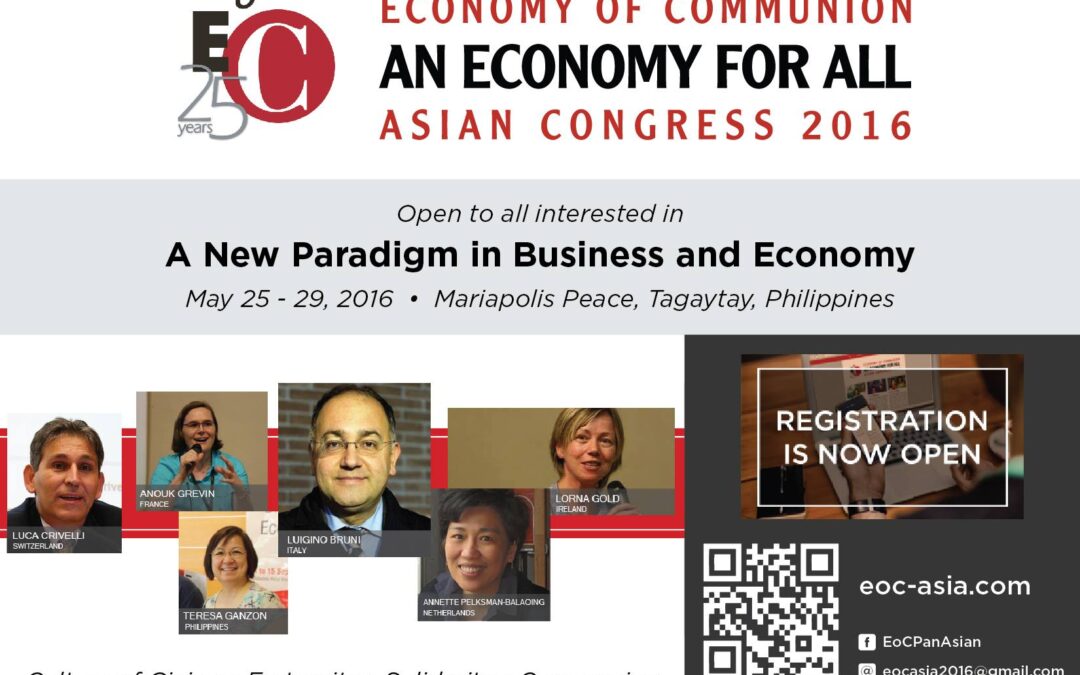
Feb 5, 2016 | Non categorizzato
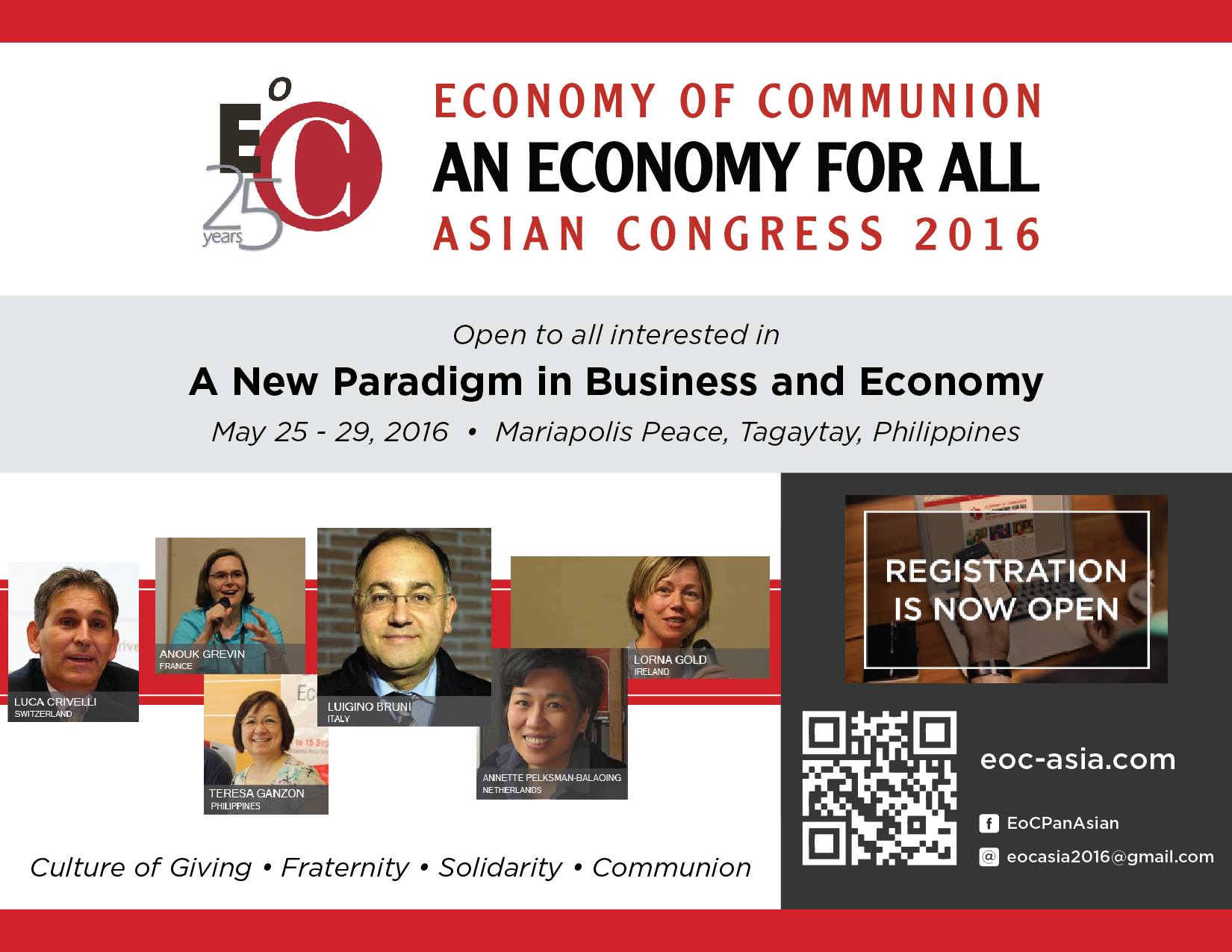 Invited are all interested advocates of a different way of viewing economy and doing business that is characterized by communion, fraternity and solidarity, especially with the weakest sectors of society. The congress hopes to bring together entrepreneurs, professors, young people and members of civil society with a passion for changing the business world, understanding in depth the challenges facing Asian nations despite the unprecedented economic growth of the past years, due to a continued adherence to the capitalist model and concept of economics – and what the economy of communion can offer to make the changes more meaningful and inclusive. Economists expected to be give their inputs in the congress include members of the international commission – Luigino Bruni (Italy), Anouk Grevin (France), Lorna Gold (Ireland), Teresa Ganzon (Philippines) and Luca Crivelli (Switzerland). Invited as a guest lecturer also is Dr. Annette Pelksman-Balaoing of the University of Rotterdam, Netherlands, to give a perspective on Globalization and how it has affected Asian nations in the past decade. It is expected to draw participants from different nations in Asia, as well as Australia. Live streaming playlist 25-29 May The EOC Pan Asian Congress will also have a celebration of EOC’s 25th anniversary on May 28th, even of the actual anniversary date on the 29th. Go to the EoC Asia web-site Register: More info: eocasia2016@gmail.com
Invited are all interested advocates of a different way of viewing economy and doing business that is characterized by communion, fraternity and solidarity, especially with the weakest sectors of society. The congress hopes to bring together entrepreneurs, professors, young people and members of civil society with a passion for changing the business world, understanding in depth the challenges facing Asian nations despite the unprecedented economic growth of the past years, due to a continued adherence to the capitalist model and concept of economics – and what the economy of communion can offer to make the changes more meaningful and inclusive. Economists expected to be give their inputs in the congress include members of the international commission – Luigino Bruni (Italy), Anouk Grevin (France), Lorna Gold (Ireland), Teresa Ganzon (Philippines) and Luca Crivelli (Switzerland). Invited as a guest lecturer also is Dr. Annette Pelksman-Balaoing of the University of Rotterdam, Netherlands, to give a perspective on Globalization and how it has affected Asian nations in the past decade. It is expected to draw participants from different nations in Asia, as well as Australia. Live streaming playlist 25-29 May The EOC Pan Asian Congress will also have a celebration of EOC’s 25th anniversary on May 28th, even of the actual anniversary date on the 29th. Go to the EoC Asia web-site Register: More info: eocasia2016@gmail.com
The YouTube links are: For Day 1, 25 May to Day 5, 29 May: Link to the playlist of the whole meeting: https://www.youtube.com/playlist?list=PLseXirhCvXpHfSeiIcXBqicR4Hfl4dxuB EoC 25° Anniversary Event – EoC Asian Congress 2016 (9:00PM – 10:00 PM Philippines time) https://youtu.be/pQpqh4REvWc
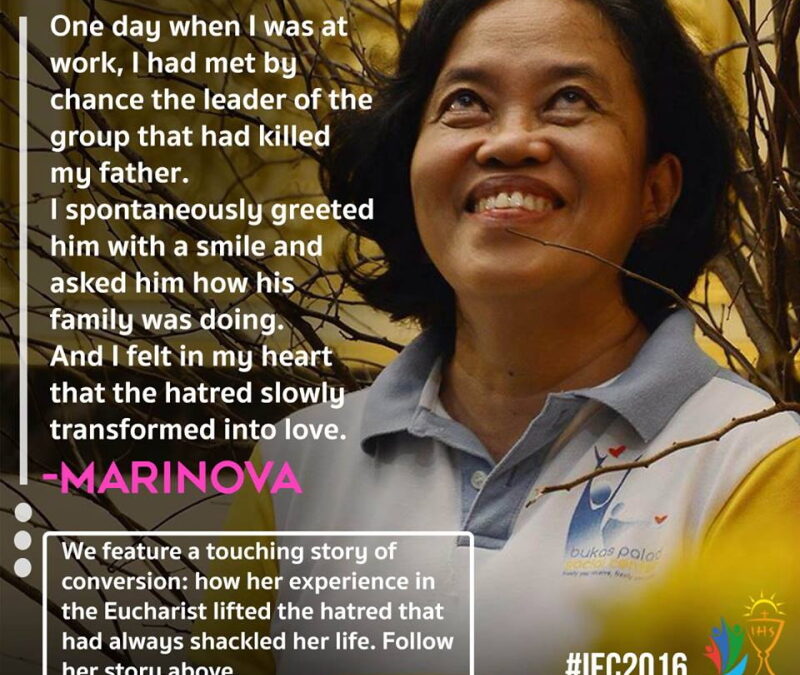
Feb 5, 2016 | Focolare Worldwide
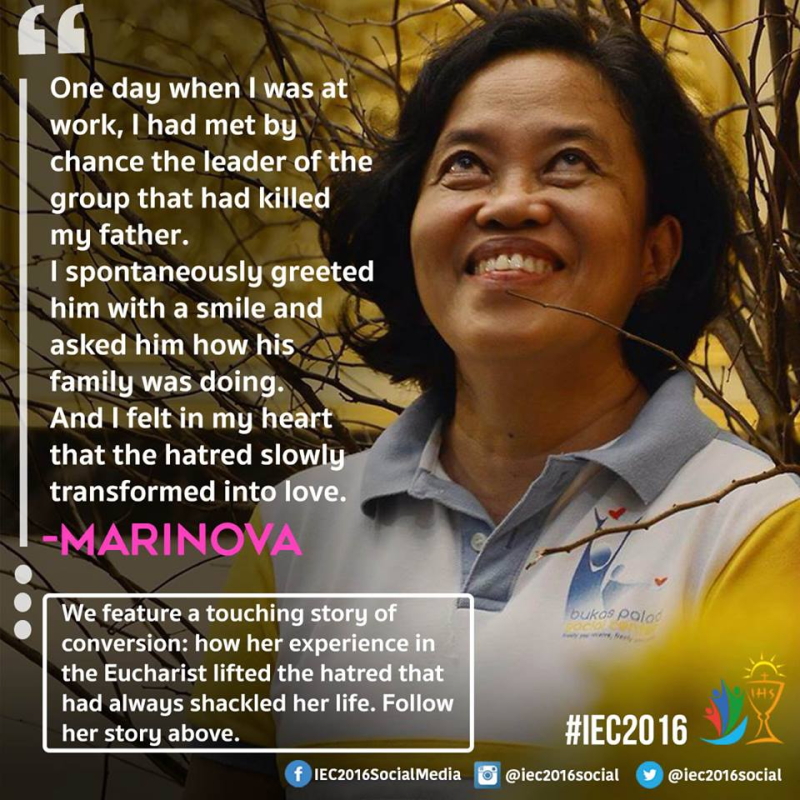 The 51st International Eucharistic Congress has been held in Cebu City, Philippines. (January 24th – 31st, 2016). The official social media coverage of the IEC 2016 scouted for meaningful life stories related to the Eucharist and published them in its facebook page (IEC2016SocialMedia). The experience of Marinova, a focolarina based in Cebu, touched them. “I was 11 years old when a big suffering came to my family. My father was killed by a group of persons who were very influential and no justice was served because we were poor. Our grandparents reminded us that true justice is found only in God! Thanks to their help I was able to finish college and got a job immediately. I became the bread winner of the family as I worked hard to help my mother. I incurred a lot of debts with loan sharks in order to bring ahead my family. Because of all these problems, an intense hatred developed in my heart for all those people who killed my father. They caused all the miseries in our life. Then I took up studies in Law because I wanted justice for the death of my father. But God had another plan for me. One of my classmates, a youth member of the Focolare Movement, invited me to a meeting of this ecclesial movement which has as its goal the fulfillment of Jesus’ prayer to the Father, ‘That they may all be one’, and strives to bring unity to the human family by translating the Gospel into life. A new adventure began in my life. I too started putting into practice the words of Jesus. He said: ‘Love and I will manifest myself to you. ‘Whatever you do to the least of your brethren you do it unto me.’ I became addicted to this new drug: LOVE… I found the essence and true meaning of my life and for the first time I felt that Jesus in the Eucharist was the source of it all. One day I asked Jesus to teach me how to live concretely his word ‘Love your enemy’, since I felt that hatred for those who killed my father still enveloped me. And indeed the following day, at work, I met by chance the leader of the group. Spontaneously I greeted him with a smile and asked him how everyone in his family was. I saw that this greeting was a great surprise for him. I was even more surprised by what I was did. Little by little I felt that the hatred within me was melting and was slowly being transformed into love! But that was only the first step! Love is creative! I felt that each one in the group should feel that we had forgiven him. Together with one of my brothers, we visited them trying to re-build our relationship and to make them understand that God loves them! It came to a point that one of them asked for forgiveness for what he had done and in turn asked for prayers for his family and his health. I knew clearly that this experience of forgiveness and healing was the transforming power of Jesus in the Eucharist.”.
The 51st International Eucharistic Congress has been held in Cebu City, Philippines. (January 24th – 31st, 2016). The official social media coverage of the IEC 2016 scouted for meaningful life stories related to the Eucharist and published them in its facebook page (IEC2016SocialMedia). The experience of Marinova, a focolarina based in Cebu, touched them. “I was 11 years old when a big suffering came to my family. My father was killed by a group of persons who were very influential and no justice was served because we were poor. Our grandparents reminded us that true justice is found only in God! Thanks to their help I was able to finish college and got a job immediately. I became the bread winner of the family as I worked hard to help my mother. I incurred a lot of debts with loan sharks in order to bring ahead my family. Because of all these problems, an intense hatred developed in my heart for all those people who killed my father. They caused all the miseries in our life. Then I took up studies in Law because I wanted justice for the death of my father. But God had another plan for me. One of my classmates, a youth member of the Focolare Movement, invited me to a meeting of this ecclesial movement which has as its goal the fulfillment of Jesus’ prayer to the Father, ‘That they may all be one’, and strives to bring unity to the human family by translating the Gospel into life. A new adventure began in my life. I too started putting into practice the words of Jesus. He said: ‘Love and I will manifest myself to you. ‘Whatever you do to the least of your brethren you do it unto me.’ I became addicted to this new drug: LOVE… I found the essence and true meaning of my life and for the first time I felt that Jesus in the Eucharist was the source of it all. One day I asked Jesus to teach me how to live concretely his word ‘Love your enemy’, since I felt that hatred for those who killed my father still enveloped me. And indeed the following day, at work, I met by chance the leader of the group. Spontaneously I greeted him with a smile and asked him how everyone in his family was. I saw that this greeting was a great surprise for him. I was even more surprised by what I was did. Little by little I felt that the hatred within me was melting and was slowly being transformed into love! But that was only the first step! Love is creative! I felt that each one in the group should feel that we had forgiven him. Together with one of my brothers, we visited them trying to re-build our relationship and to make them understand that God loves them! It came to a point that one of them asked for forgiveness for what he had done and in turn asked for prayers for his family and his health. I knew clearly that this experience of forgiveness and healing was the transforming power of Jesus in the Eucharist.”.

Feb 4, 2016 | Focolare Worldwide
 The sign from heaven While I was waiting to have a check-up at the doctor’s, I happened to hear a lady pregnant with her fourth child, say to the secretary that she could not keep the child, given her economic conditions. “God will keep him in mind”, she concluded. Since I could not remain indifferent to this news, I immediately recounted this to my close friends, and together we decided to collect some funds among us. I then went to the doctor’s secretary to ask her to give the money to that lady without revealing its source. In the meantime we entrusted all this to God. Time passed and we did not know the outcome; somebody noted that the lady’s tummy continued to grow (we live in a small town where we all know one another) In the end, a beautiful baby was born. After a year I received the lady’s thanks, since she had guessed where that money had come from: “The day before the abortion, I had asked God to enlighten me on the right thing to do. Late in the evening, the doctor’s secretary came by with your envelope. For me it was a sign from heaven.” (R. – Italy) The iron Corina needed an iron. My first thought was to entrust her need to God’s providence. Later, a lady invited me to a parish breakfast. Since I had so many things to do, I felt like saying no. But I accepted just to make her happy. I found myself having coffee with some elderly ladies who were pleased to have a young person in their midst. It was there that I saw an acquaintance: she had bought an iron that was too heavy for her, and she asked me if I knew of anyone who needed it. I was happy and immediately thought of my prayer. (I.- Switzerland) While waiting for the train… I had been betrayed by the people I loved and had thus left the family to live on my own. I was severely depressed, and had tried to kill myself a few times. The last time was in a small train station. While I was waiting for the first train to throw myself on the rails, a nun joined me at the tracks and convinced me to desist. Then she took care of me, and introduced me to a rehab community that welcomed me with open arms. At first, I refused the love they showed me due to the hatred I harboured inside. Even if I did not want to hear about God, one of them convinced me to read the Bible. Little by little the hardness of my heart began to melt and faith started to grow inside me. Some years have passed and I have learned to forgive, love my neighbor and be patient… Now I have reconnected also with my relatives, I have a job, a home, and feel serene. Nothing happens by chance. Thanks to God who has made me experience his immense love! (C. – Italy)
The sign from heaven While I was waiting to have a check-up at the doctor’s, I happened to hear a lady pregnant with her fourth child, say to the secretary that she could not keep the child, given her economic conditions. “God will keep him in mind”, she concluded. Since I could not remain indifferent to this news, I immediately recounted this to my close friends, and together we decided to collect some funds among us. I then went to the doctor’s secretary to ask her to give the money to that lady without revealing its source. In the meantime we entrusted all this to God. Time passed and we did not know the outcome; somebody noted that the lady’s tummy continued to grow (we live in a small town where we all know one another) In the end, a beautiful baby was born. After a year I received the lady’s thanks, since she had guessed where that money had come from: “The day before the abortion, I had asked God to enlighten me on the right thing to do. Late in the evening, the doctor’s secretary came by with your envelope. For me it was a sign from heaven.” (R. – Italy) The iron Corina needed an iron. My first thought was to entrust her need to God’s providence. Later, a lady invited me to a parish breakfast. Since I had so many things to do, I felt like saying no. But I accepted just to make her happy. I found myself having coffee with some elderly ladies who were pleased to have a young person in their midst. It was there that I saw an acquaintance: she had bought an iron that was too heavy for her, and she asked me if I knew of anyone who needed it. I was happy and immediately thought of my prayer. (I.- Switzerland) While waiting for the train… I had been betrayed by the people I loved and had thus left the family to live on my own. I was severely depressed, and had tried to kill myself a few times. The last time was in a small train station. While I was waiting for the first train to throw myself on the rails, a nun joined me at the tracks and convinced me to desist. Then she took care of me, and introduced me to a rehab community that welcomed me with open arms. At first, I refused the love they showed me due to the hatred I harboured inside. Even if I did not want to hear about God, one of them convinced me to read the Bible. Little by little the hardness of my heart began to melt and faith started to grow inside me. Some years have passed and I have learned to forgive, love my neighbor and be patient… Now I have reconnected also with my relatives, I have a job, a home, and feel serene. Nothing happens by chance. Thanks to God who has made me experience his immense love! (C. – Italy)


 “I was still a child,” Alfonso from the class of 1945 recounts, “when my father was unjustly imprisoned. My mother and I would visit him in prison and, at such a tender age I realised how lonely the inmates were: people without hope or future – and without dignity. So, I promised myself that one day I would do something for them.” Alfonso had to wait for that chance. He enrolled in a course on volunteering and obtained permission to make visits to Rebibbia Prison, which currently has 1,700 inmates. They are serving time for the most varied crimes: drug dealing, sex abuse, mafia activity, extortion, murder, and more. Alfonso was aware that his efforts would be limited by the distrust of the inmates who belived they had lost any chance at redemption. In fact, many of them refused to let him approach. But he never gave up because he was convinced they were the image of the God he had chosen when he became a
“I was still a child,” Alfonso from the class of 1945 recounts, “when my father was unjustly imprisoned. My mother and I would visit him in prison and, at such a tender age I realised how lonely the inmates were: people without hope or future – and without dignity. So, I promised myself that one day I would do something for them.” Alfonso had to wait for that chance. He enrolled in a course on volunteering and obtained permission to make visits to Rebibbia Prison, which currently has 1,700 inmates. They are serving time for the most varied crimes: drug dealing, sex abuse, mafia activity, extortion, murder, and more. Alfonso was aware that his efforts would be limited by the distrust of the inmates who belived they had lost any chance at redemption. In fact, many of them refused to let him approach. But he never gave up because he was convinced they were the image of the God he had chosen when he became a  Through his visits with inmates, Alfonso has come to realise the importance of that fragile thread that connects them to the outside world. This is why he works so hard at keeping the relationship with families alive – especially with wives – and supporting families that find themselves in dire straits because of their relative’s imprisonment. This all takes time, people, energy and money. Alfonso never gave up. He began a project called “
Through his visits with inmates, Alfonso has come to realise the importance of that fragile thread that connects them to the outside world. This is why he works so hard at keeping the relationship with families alive – especially with wives – and supporting families that find themselves in dire straits because of their relative’s imprisonment. This all takes time, people, energy and money. Alfonso never gave up. He began a project called “






 (…)“Let among you who is without sin be the first to throw a stone at her” (Jn 8:7). Jesus said this to those who wanted to stone the adulteress. The central idea in Jesus’ commands is always love. This is why he doesn’t want us Christians to condemn anyone. In fact he says, “Do not judge,” and proclaims, “Blessed are the merciful.” Jesus wants mercy. Nevertheless, from what he says one could conclude that there is someone who could throw the first stone: whoever is without sin. This is certainly not one of us, we are all sinners. But there is a person who is without sin. And we know who she is: the Mother of God. Could Mary, then, “throw a stone” at someone who erred? Did she ever do such a thing when she was on earth? We know our Mother. We know what Scripture says about her, what Tradition has handed down to us about her, what the People of God have always thought about her. Mary loves everyone. She is merciful She is the advocate of the most unfortunate. It is to her that countless Christians have turned, when they have had the impression that God’s justice was upon them. Mary does not throw stones. Quite the contrary, no one except Jesus spreads love the way she does. Why? Because she is a mother, and mothers only know how to love. It is typical of a mother to love her children as herself, because there’s something of herself in them. … We too can find something of ourselves in others. For we must see Jesus in ourselves and in every neighbour. What shall we do? With each neighbor, at home, at work, or on the street, with the people we talk; with those we speak to over the phone, or for whom we carry out our daily work – with every person we meet these days, we must think: “I must act as if I were his or her mother,” and act accordingly. Mothers are always serving, Mothers always find excuses for their children. Mothers are always full of hope. “As if I were his or her mother”, this is thought which must be foremost in our minds these days. This must be our resolution, if we want to be sure not to throw stones: and to be Mary’s presence here on earth for everyone we meet. Chiara Lubich Rocca di Papa, 3rd March 1983 Source: Chiara Lubich Centre
(…)“Let among you who is without sin be the first to throw a stone at her” (Jn 8:7). Jesus said this to those who wanted to stone the adulteress. The central idea in Jesus’ commands is always love. This is why he doesn’t want us Christians to condemn anyone. In fact he says, “Do not judge,” and proclaims, “Blessed are the merciful.” Jesus wants mercy. Nevertheless, from what he says one could conclude that there is someone who could throw the first stone: whoever is without sin. This is certainly not one of us, we are all sinners. But there is a person who is without sin. And we know who she is: the Mother of God. Could Mary, then, “throw a stone” at someone who erred? Did she ever do such a thing when she was on earth? We know our Mother. We know what Scripture says about her, what Tradition has handed down to us about her, what the People of God have always thought about her. Mary loves everyone. She is merciful She is the advocate of the most unfortunate. It is to her that countless Christians have turned, when they have had the impression that God’s justice was upon them. Mary does not throw stones. Quite the contrary, no one except Jesus spreads love the way she does. Why? Because she is a mother, and mothers only know how to love. It is typical of a mother to love her children as herself, because there’s something of herself in them. … We too can find something of ourselves in others. For we must see Jesus in ourselves and in every neighbour. What shall we do? With each neighbor, at home, at work, or on the street, with the people we talk; with those we speak to over the phone, or for whom we carry out our daily work – with every person we meet these days, we must think: “I must act as if I were his or her mother,” and act accordingly. Mothers are always serving, Mothers always find excuses for their children. Mothers are always full of hope. “As if I were his or her mother”, this is thought which must be foremost in our minds these days. This must be our resolution, if we want to be sure not to throw stones: and to be Mary’s presence here on earth for everyone we meet. Chiara Lubich Rocca di Papa, 3rd March 1983 Source: Chiara Lubich Centre 
 Card. Giuseppe Betori, Archbishop of Florence traced an important phase of his story, and described him as «A promoter of proactive communion between the various groups and associations,» who «interpreted the hope of Cardinal Benelli and Chiara Lubich» for the creation of the
Card. Giuseppe Betori, Archbishop of Florence traced an important phase of his story, and described him as «A promoter of proactive communion between the various groups and associations,» who «interpreted the hope of Cardinal Benelli and Chiara Lubich» for the creation of the



